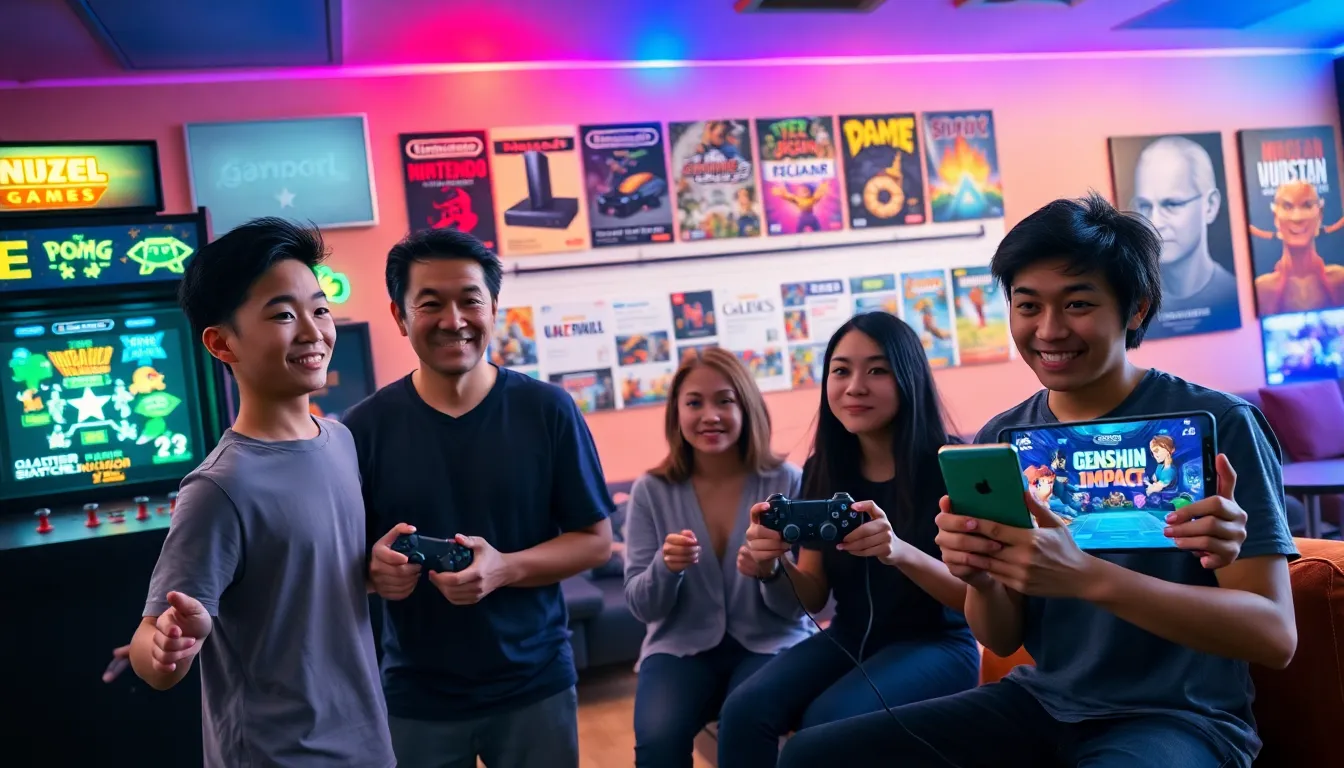In the vast landscape of modern entertainment, gaming has emerged as a dominant force, captivating audiences across the globe. From pixelated classics to immersive virtual arenas, the evolution of video games reflects significant technological advances and cultural shifts. This article dives deep into several facets of the gaming universe, from its rich history and community impact to the ever-growing world of esports. We’ll also explore the fundamentals of game design and the future potential of virtual and augmented reality, offering insights for gamers and industry enthusiasts alike.
Table of Contents
ToggleThe Evolution Of Gaming: A Brief History

Key Milestones In Video Game Development
The journey of gaming began in the early 1970s with simple arcade games like Pong and Space Invaders. These pioneering titles not only set the stage for future developments but also established gaming as a popular pastime. Throughout the 1980s and 1990s, home consoles like the Nintendo Entertainment System and Sega Genesis revolutionized the industry with diverse game libraries and innovative gameplay mechanisms. The introduction of 3D gaming in the late 90s propelled titles like Doom and Quake into notoriety, creating a new genre of first-person shooters.
With the new millennium came profound changes. Online gaming started gaining traction, significantly altering how gamers interacted with each other. The rise of high-speed internet and platforms such as Xbox Live and PlayStation Network allowed players to connect across the globe, ushering in a new era of multiplayer experiences.
The Rise Of Mobile Gaming
As technology progressed, mobile devices became increasingly powerful, leading to the explosion of mobile gaming. From the simple gameplay of Angry Birds to the complex worlds of Genshin Impact, mobile games have expanded their reach far beyond traditional consoles and PCs. Gamers of all ages now carry gaming experiences in their pockets, democratizing access and fostering a new generation of players.
The Impact Of Online Gaming Communities
Social Interaction And Gaming Culture
Online gaming communities have transformed the landscape of gaming, creating platforms for social interaction and connection away from the physical realm. Gamers can build friendships, create clans, and participate in events, which helps to cultivate a sense of belonging among players. This social aspect has bridged gaps between culture and geography, connecting people from different backgrounds over their shared passion for games.
Also, gaming culture has evolved, leading to conventions, streaming platforms, and forums where players can discuss strategies or share experiences. Games like Fortnite and Among Us have further shown the potential of community engagement through interactive storytelling and collaborative gameplay.
Esports: The New Frontier
The Business Of Gaming: An Industry Overview
Esports, or competitive gaming, has surged into the spotlight, turning into a billion-dollar industry. Professional gamers and teams are now sponsored by major companies, and tournaments can attract millions of viewers both in-person and online. Games like League of Legends and Dota 2 have set remarkable records in terms of prize pools and audience engagement, capturing the attention of investors and advertisers alike.
With streaming platforms like Twitch and YouTube Gaming, the line between spectator and player is blurring, changing the way audiences engage with content. Brands are increasingly looking to target this demographic, making esports a lucrative investment.
Trends Shaping The Future Of Gaming
Several trends are currently influencing the esports landscape. The rise of mobile esports, inclusive gaming initiatives supporting diverse underrepresented groups, and the integration of blockchain technology for secure transactions and ownership of digital assets are changing how games are perceived and played.
Game Design Fundamentals: What Makes A Great Game?
Narrative And Storytelling In Games
At the heart of every memorable game lies a captivating narrative. Engaging storylines, well-drawn characters, and immersive worlds help players connect on a deeper level. Games like The Last of Us and Witcher 3 offer not only gameplay but also emotional experiences that resonate with players well beyond their gaming sessions.
The Role Of Gameplay Mechanics
Fundamental gameplay mechanics can significantly influence the player’s experience. Whether through puzzle-solving, real-time strategy, or action-packed combat, the design of these mechanics can elevate a game’s engagement and replayability. A balance between challenge and reward is essential to maintaining player interest, pushing developers to innovate continually.
Visuals And Aesthetics: The Art Of Gaming
Technological Advancements Influencing Game Design
The aesthetic aspect of games has transformed with enhancements in technology. Modern game engines such as Unreal Engine and Unity allow developers to create breathtaking graphics and intricate animations. Incorporating high-definition visuals and realistic physics not only enriches the gaming experience but also immerses players in fantastical worlds.
As technology progresses, innovations like ray tracing and AI-driven animations are rewriting the rules of what’s possible in game design, allowing for more vibrant and dynamic gaming environments.
The Future Of Gaming: VR And AR Experiences
As we look ahead, virtual reality (VR) and augmented reality (AR) stand poised to revolutionize the gaming experience. VR immerses players into digital worlds like never before, creating simulated environments where they can physically interact with gameplay. Meanwhile, AR blends the virtual and physical realms, enhancing real-life experiences through digital overlays. Titles such as Pokémon GO have popularized AR gaming, showcasing its potential for engagement and interaction.
Conclusion
The gaming universe is continuously evolving, reflecting technological advancements and cultural shifts in society. From its humble beginnings to the rise of esports and immersive experiences, gaming has proven to be more than just a hobby, it’s a global cultural phenomenon. As technology advances, the future of gaming promises exciting developments, ensuring that the journey is far from over. Players, developers, and enthusiasts can look forward to new horizons in this fantastic digital landscape.
